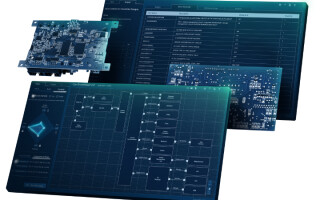CompactPCI PlusIO SBC with Intel Atom Apollo Lake-I
September 12, 2017

MEN presents the latest member of its CompactPCI Intel CPU product family, which has been growing for more than eleven years now. The F26L is based on Intel's latest Apollo Lake-I platform with...
| CompactPCI PlusIO SBC with Intel Atom Apollo Lake-I |
The CompactPCI PlusIO board F26L is the latest member of the scalable Intel CPU cards family. It is based on Intel's latest Atom processor Apollo Lake-I – optionally with two or four cores. Due to the low-power architecture of its processor, the CPU board has a total power consumption of max. 6.5 to 12 watts, while having a clock frequency of up to 1.6 GHz. The graphics performance has been improved once more for the new Apollo Lake generation.
The front panel of the F26L features VGA graphics, two Gigabit Ethernet and two USB 3.0 interfaces. Furthermore, additional functions like a variety of different UARTs, four USBs, SATA and HD audio can be made available by using extension cards.
The F26L supports the CompactPCI PlusIO specification (PICMG 2.30), meaning it can be used as a mere CompactPCI card, or in a hybrid system for control of both CompactPCI and CompactPCI Serial peripheral boards.
Compliant to the PCIMG 2.30 standard, four USB 2.0, four PCI Express x1 as well as two Gigabit Ethernet interfaces are accessible on the J2 rear I/O connector.
As it has been designed for applications with extreme temperatures, the F26L has been equipped with a specially outlined heat sink, which efficiently takes away the heat from the board. This kind of application is common in the rail market, in industrial automation and in the power and energy sector. Reliable security is provided by thermal supervision of the processor, by a watchdog for the operating system as well as by a Trusted Platform Module (TPM), which encrypts the data. The continuously expanded family concept ensures that the CPCI system and its CPU board are future-proof and long-term available.
The F26L operates in Windows 10 and Linux environments as well as under real-time operating systems that support Intel's multi-core architecture. The AMI UEFI BIOS was specially designed for embedded systems.






